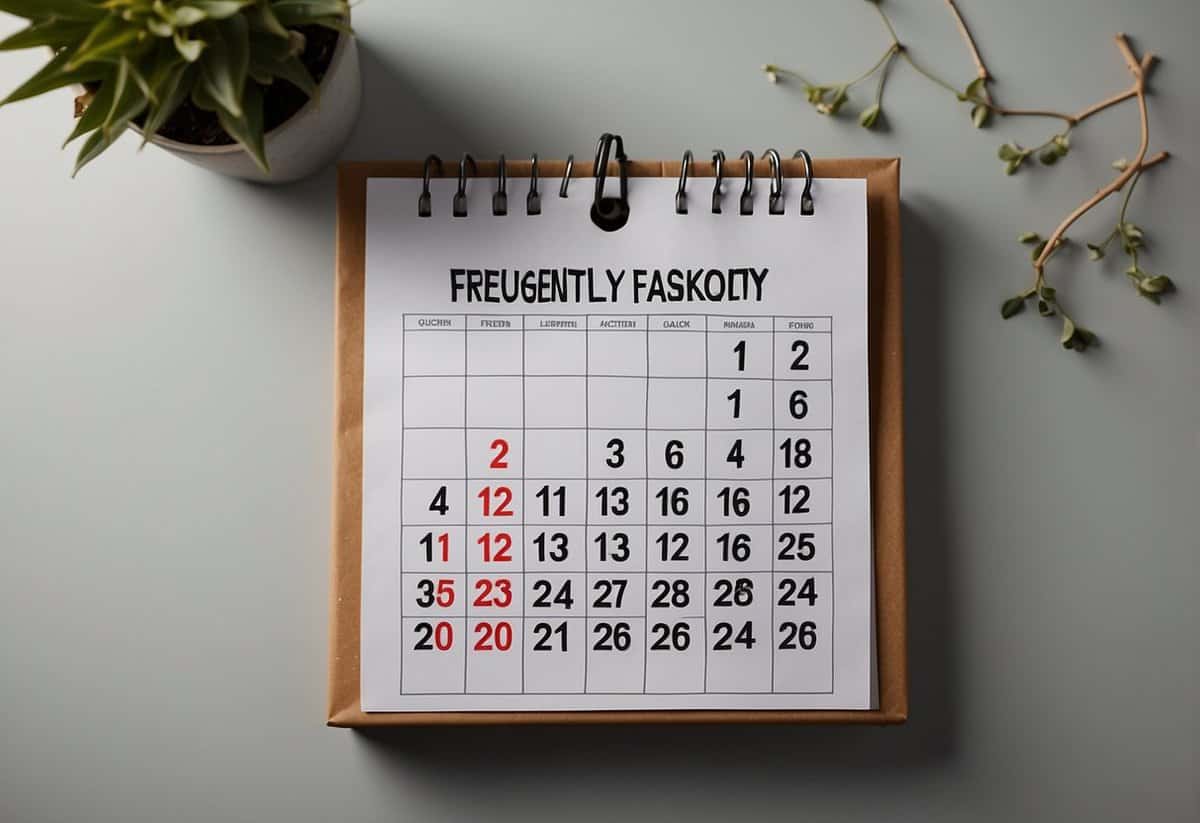How Many Times A Week Do Married Couples Make Love? Exploring Intimacy's Rhythm
It's a question many people ponder, perhaps in quiet moments or when reflecting on their own relationships: How many times a week do married couples make love? This isn't just about a number; it's really about connection, closeness, and the unique dance of intimacy that happens between two people who share their lives. The answer, you might find, is a bit more complex than a simple statistic, and that's actually a good thing.
When we ask "how many," we're often looking for a benchmark, a way to gauge if our own experiences fit into a broader pattern. Yet, the meaning of "many" itself is quite fluid, isn't it? My text points out that "many" means "consisting of or amounting to a large but indefinite number." So, when we talk about how many times couples connect physically, we are, in a way, looking at a wide, varied range, a number that's not fixed but rather quite open to individual stories.
This article aims to shed some light on this very personal aspect of married life. We'll explore what influences intimacy, what typical patterns might look like, and how couples can nurture their physical connection in ways that feel right for them. It's less about hitting a specific number and more about understanding the different rhythms that keep a relationship strong and loving, which is something we all want, I suppose.
Table of Contents
- Understanding the Average and the Many Variables
- Factors That Shape Intimacy in Marriage
- Nurturing Your Physical Connection
- Common Questions About Marital Intimacy
- Final Thoughts on Connection
Understanding the Average and the Many Variables
When people look for "how many times a week do married couples make love," they're often hoping for a clear-cut answer, aren't they? But the truth is, there isn't one single, universal number that applies to every married couple. It's a bit like asking how many times a week people laugh; it varies wildly from one person to the next, and from one day to the next, too.
What Is the Average Frequency?
Studies and surveys on this topic often show a wide range, but if we're looking for a general idea, many reports suggest that the average married couple makes love about once a week. This figure tends to be cited quite often. However, it's really important to remember that this is an average, and averages can be a bit misleading because they smooth out all the individual highs and lows, you know?
For some couples, once a week might feel like a lot, while for others, it might feel like not enough. And then there are couples who go through phases where it's more frequent, and other times when it's less so. It's almost as if the number itself isn't the most important part, but rather how it feels to the people involved, which is a big difference.
Why Do Numbers Vary So Much?
The variation in how many times couples connect physically is, quite frankly, huge. As my text explains, "many" refers to "a large but indefinite number," and that definition fits perfectly here. There are so many factors at play that influence this aspect of a relationship. It's not just about desire, but also about circumstances, health, and the overall state of the partnership, too.
You see, what works for one couple might not work for another, and that's completely fine. It's about finding a rhythm that feels good and right for both partners, a frequency that supports their connection and brings them closer. That's the real goal, isn't it?
Factors That Shape Intimacy in Marriage
So, what actually influences how many times a week married couples make love? It's a whole mix of things, really. It’s never just one simple cause or effect, but rather a blend of personal situations and relationship dynamics. We can look at these different elements to get a better sense of why frequency varies so much.
The Role of Time and Life Stages
When a couple first gets together, especially in the early days of marriage, physical intimacy often tends to be more frequent. This is quite natural, as they're still discovering each other and building that initial bond. However, as the years go by, and life stages shift, this can change. For example, having young children often means less sleep and more demands on time and energy, which can understandably affect how many opportunities there are for intimacy. It’s just a reality for many parents, I suppose.
Later in life, as children grow up or as couples enter retirement, their rhythm might shift again. Some find more time and energy for intimacy, while others might experience changes related to age or health. So, the number of times can really ebb and flow throughout the course of a long marriage, which is pretty normal, actually.
Communication and Emotional Closeness
This is, arguably, one of the most important elements. A strong emotional connection often paves the way for physical intimacy. When couples talk openly, share their feelings, and feel truly heard and valued, it builds a foundation of trust and closeness. This kind of emotional bond can significantly impact how many times a week they feel drawn to make love.
Conversely, if there are unresolved conflicts, unspoken resentments, or a general lack of emotional connection, it can naturally reduce the desire for physical intimacy. It's like, if you don't feel close emotionally, it's harder to feel close physically, too, isn't it? Learning more about communication in relationships on our site can really help here.
Stress and Daily Pressures
Modern life can be incredibly demanding. Work pressures, financial worries, family responsibilities, and just the general hustle and bustle of everyday existence can take a toll. When people are feeling overwhelmed or exhausted, their desire for physical intimacy can often decrease. It's hard to feel romantic when you're completely drained, or so it seems.
Finding ways to manage stress, even small things like taking a few minutes to relax or sharing burdens with your partner, can make a real difference. Reducing these pressures can free up mental and emotional space for connection, which is pretty vital, you know?
Health and Well-being
Physical and mental health play a big part in a person's libido and overall energy levels. Conditions like chronic pain, depression, anxiety, hormonal changes, or certain medications can all affect a person's desire for sex. It's a very real aspect that sometimes gets overlooked. Openly discussing these health aspects with a partner, and perhaps a doctor, can be a helpful step.
Taking care of one's own well-being – through good sleep, healthy eating, and some physical activity – can also contribute positively to one's desire and capacity for intimacy. It's all connected, really, isn't it?
Individual Desires and Libido
Each person has their own unique level of sexual desire, or libido. These levels can differ between partners, and they can also fluctuate for an individual over time. One partner might naturally have a higher desire than the other, and this is perfectly normal. The key is to find a way to bridge this difference through understanding and compromise. It's about meeting in the middle, or finding a rhythm that satisfies both, even if it's not always perfectly aligned. You can also link to this page for more insights on individual desires.
It's important to remember that there's no "right" amount of desire. What matters is how well partners communicate about their desires and how they work together to create a fulfilling intimate life for both of them, which is the whole point, actually.
Nurturing Your Physical Connection
Given all the factors that influence how many times a week married couples make love, the focus shifts from a specific number to the quality of the connection. It's about making sure both partners feel loved, desired, and satisfied. Here are some thoughts on how to nurture that bond, which is something we all aspire to, I suppose.
Talking About It Openly
This is probably the most crucial piece of advice. Couples who talk openly and honestly about their desires, their needs, and any challenges they might be facing tend to have more fulfilling intimate lives. It means having conversations about what feels good, what's missing, or what might be getting in the way. It's not always easy to start these talks, but they are incredibly valuable, you know?
Creating a safe space where both partners feel comfortable sharing their thoughts without judgment is key. This kind of communication can help bridge any gaps in desire or understanding, leading to a stronger, more connected relationship, which is a pretty big deal.
Making Time for Each Other
In our busy lives, it's easy for intimacy to fall by the wayside. Sometimes, it's not about a lack of desire but simply a lack of opportunity. Actively scheduling time for intimacy, even if it feels a bit unromantic at first, can be incredibly helpful. This doesn't mean it has to be rigid; it just means prioritizing that connection.
It could be a regular "date night" or simply setting aside a specific evening each week when you know you'll have uninterrupted time together. The act of prioritizing each other sends a strong message of love and commitment, and that's something really special, isn't it?
Exploring New Ways to Connect
Physical intimacy doesn't always have to look the same. As my text mentions, "many" can refer to a "large number" of things, and that certainly applies to ways couples can connect. Trying new things, whether it's different activities, different times of day, or simply exploring each other's bodies in new ways, can keep the spark alive. It's about curiosity and a willingness to be playful together.
This could involve non-intercourse forms of intimacy, cuddling, massages, or simply spending quiet, affectionate time together. The goal is to keep the connection fresh and exciting for both partners, which is a lovely thing to aim for, I think.
Common Questions About Marital Intimacy
People often have similar questions when thinking about how many times a week married couples make love. Here are some common ones that come up, which is pretty natural, I suppose.
Is it normal for sex frequency to decrease over time in a marriage?
Yes, it's actually quite common for the frequency of physical intimacy to change as a marriage progresses. The intense passion of the early days often settles into a more comfortable, deeper form of love. Life circumstances, like raising children or career demands, can also play a big part in these shifts. What's important is that both partners feel satisfied with their intimate life, whatever its rhythm, which is the main thing, really.
What if my partner and I have different libidos?
This is a very common situation, actually. It's rare for two people to have perfectly matched libidos all the time. The key here is open and honest communication. Talk about your desires and needs without blame or judgment. Finding a compromise that respects both partners' feelings is essential. This might involve meeting in the middle, exploring different types of intimacy, or focusing on quality over quantity, which is something many couples find helpful.
Does a lack of sex mean our marriage is in trouble?
Not necessarily. While physical intimacy is an important part of many marriages, a temporary dip in frequency doesn't automatically mean your relationship is doomed. It's more about the underlying reasons for the change. If there's a lack of intimacy due to stress, health issues, or simply busyness, these can often be addressed. However, if the lack of intimacy stems from deeper emotional issues, unresolved conflict, or a lack of connection, then it might be a sign to address those core problems. It's the 'why' that truly matters, you know?
Final Thoughts on Connection
The question of "how many times a week do married couples make love" is, in the end, less about a number and more about the quality of the connection. It's about the unique rhythm that works for two people sharing their lives. As my text says, "many" refers to "a large number of persons or things," and truly, there are many ways to express love and intimacy within a marriage. What matters most is that both partners feel loved, desired, and content with their shared intimate life. It's a continuous conversation, a dance of understanding, and a journey of shared experiences that keeps a marriage strong and vibrant. You can find more general relationship advice from trusted sources like Psychology Today, for instance, which can offer broader perspectives on connection: Psychology Today.

How Many Times Do 40 Year Old Married Couples Make Love? Understanding

How Many Times Do 40 Year Old Married Couples Make Love? Understanding

How Many Times Do 40 Year Old Married Couples Make Love? Understanding